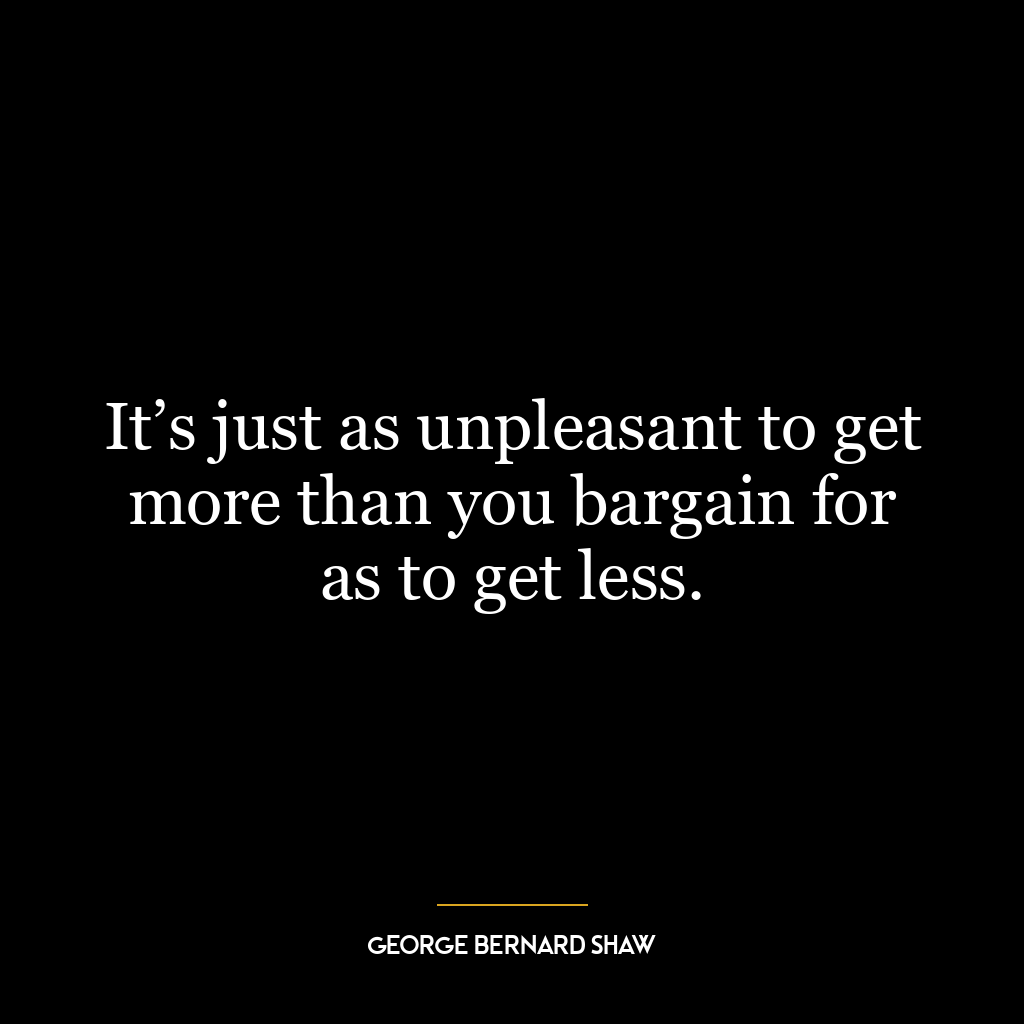It’s just as unpleasant to get more than you bargain for as to get less.
This quote, “It’s just as unpleasant to get more than you bargain for as to get less,” essentially suggests that when our expectations are not met, whether they’re exceeded or fall short, it can lead to discomfort or dissatisfaction. This is because we often have a certain expectation of how things should turn out based on our plans and desires. When reality does not align with these expectations, it can cause stress and unhappiness.
On the surface level, one might think that getting more than what was bargained for would be a good thing – a bonus. However, Shaw argues that this could also lead to negative consequences. For instance, if one is given responsibilities beyond what they anticipated or agreed upon initially, it may result in undue stress and pressure.
Applying this idea in today’s world could relate to many areas of life such as work-life balance, relationships or personal goals. In the context of work-life balance, people often strive for promotions and increased salaries but may find themselves unprepared for the additional responsibilities and time commitments that come with them – hence receiving ‘more’ than they bargained for.
In terms of personal development or self-improvement goals too; striving towards unrealistic ideals might result in disappointment even if progress has been made because the outcome doesn’t meet inflated expectations. Alternatively reaching those high standards might bring about unexpected pressures.
This quote serves as a reminder about the importance of managing expectations realistically and understanding potential implications before making decisions or setting goals – ensuring we’re ready not just for what we’ve bargained for but also anything extra that may come along with it.















